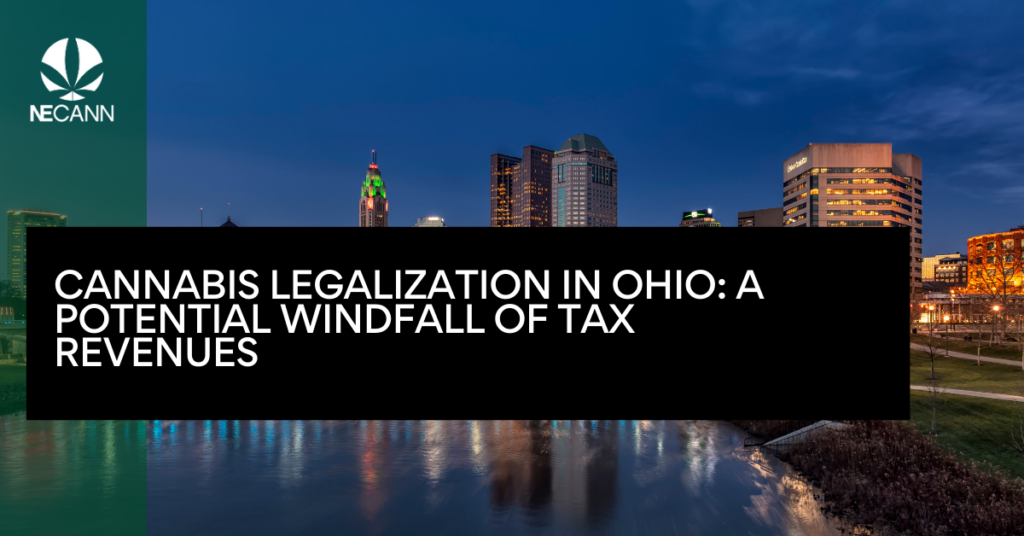A recent study conducted by Ohio State University has shed light on the potential financial gains that could accompany the legalization of adult-use cannabis in the state. The research suggests that by the fifth year of operations, tax revenues from adult-use cannabis sales could range from an impressive $275 million to a staggering $403 million.
The study, titled “What Tax Revenues Should Ohioans Expect If Ohio Legalizes Adult-Use Cannabis?,” draws parallels from cannabis tax data of Michigan’s fiscal year 2021 to estimate potential tax revenue in Ohio, given their similar demographics and tax structures.
To assess the potential revenue, the researchers present three distinct scenarios based on the rate of diminishing retail sales growth over the first five years of a legalized adult-use program. They utilize state population figures to calculate per capita cannabis tax revenue rates and factor in three different pricing scenarios specific to Ohio.
Advocates in Ohio are actively working to place the issue of cannabis legalization on the 2024 ballots. In recent developments, they submitted an additional batch of petition signatures after a shortfall was identified in their initial submission. Alongside this grassroots effort, state lawmakers have introduced legislation aimed at enacting the reforms necessary for legalization. However, this bill has yet to be presented in the full House and currently resides within the chamber’s Finance Committee.
Notably, this isn’t Ohio’s first encounter with the prospect of legalizing adult-use cannabis. In 2015, the state’s voters contemplated such a move, yet ultimately rejected the proposal. The primary criticism revolved around concerns of monopolistic tendencies within the proposal, potentially granting exclusive cannabis cultivation rights to a select group of anonymous donors.
As Ohio navigates its path toward potential adult-use cannabis legalization, this recent study fuels discussions on the financial and regulatory implications of such a decision. With the tantalizing promise of substantial tax revenues, policymakers and citizens alike are grappling with the delicate balance between economic opportunity and responsible governance.



